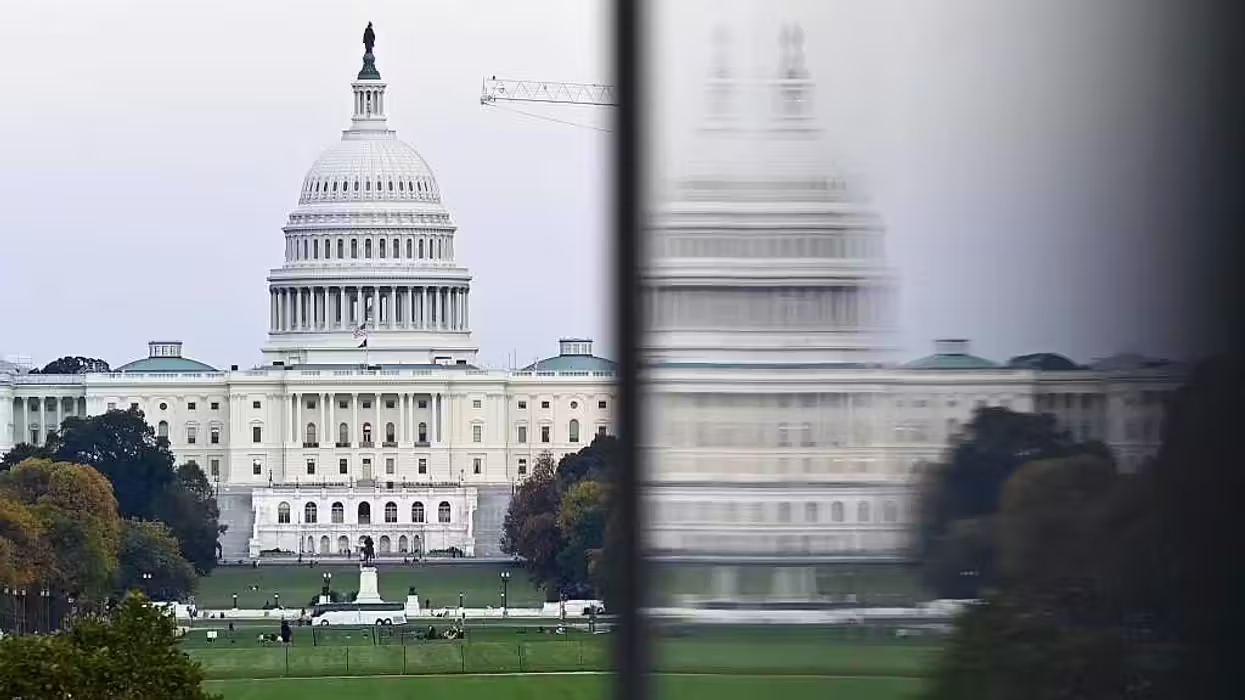
© 2025 Blaze Media LLC. All rights reserved.
Can't Even Keep the Lights On: India & Her Supposed 'Global Power' Status
August 01, 2012
India has fallen a long way from 2009 when Hillary Clinton ... declared unequivocally that “India is not just a regional power, but a global power.”
[The following is a cross post that originally appeared on CNBC]
 First it was corruption of staggering proportions, then an ill-conceived tax to claw back capital gains from foreign companies; that was followed by slowing growth and a swooning rupee. Now a power blackout in India has left 700 million people without electricity.
First it was corruption of staggering proportions, then an ill-conceived tax to claw back capital gains from foreign companies; that was followed by slowing growth and a swooning rupee. Now a power blackout in India has left 700 million people without electricity.
India has fallen a long way from 2009 when Hillary Clinton, on a visit to New Delhi, declared unequivocally
that “India is not just a regional power, but
a global power.”
[Related: Massive India Blackout Leaves 300 Million Without Power]
India’s policymakers have been fixated with pursuing major strategic ambitions with the hopes of one day becoming a superpower. The country has tripled its defense expenditure over the last decade to become one of the top-ten military spenders. It has been lobbying for a permanent seat on the United Nations Security Council and it has been trying to raise its profile globally through public diplomacy and events such as the Commonwealth Games.
In 2010, the London School of Economics argued in a report that despite India’s impressive rise, the country shouldn’t get carried away and pursue global ambitions, rather it should focus on solving its deep socio-economic problems.
“The bright lights of great power diplomacy may serve only to distract from the pressing requirements of India’s domestic development, which to date has neither locked in its successes nor laid out a sustainable path for the future,” the report said.
[Related: China's Lower PMI Reading Masks 'Notable Rebound']
Yet, the government has failed to pursue economic reforms and has flip-flopped on key policies such as letting foreign supermarket chains enter the country. That has hurt sentiment among foreign investors, who for many years were willing to fund India’s large trade deficit.
As a result, India’s benchmark Sensex Index has fallen nearly 18 percent from its peak in November 2010, and over the past year the rupee has slumped 25 percent against the dollar. Growth slowed to 5.3 percent in the January to March quarter, the slowest pace in nine years and a far cry from the 9 percent growth rates in recent years.
Creaking Infrastructure
India’s government says the country needs $1 trillion in infrastructure investments by 2017 to fix the dismal state of its roads, ports and power supplies. The government was hoping the private sector would provide most of this funding, but the head of India’s Planning Commission admitted just this month that the country won’t be able to meet the $1 trillion target.
 [Related: Greeks Can No Longer Afford Paying Expensive Bribes]
[Related: Greeks Can No Longer Afford Paying Expensive Bribes]
India’s power sector problems have also been well documented. Several major private firms which began building large power plants in recent years have been forced to abandon or delay them because of government-set electricity rates that no longer make sense in the face of higher fuel costs.
Reliance Power, for example, has decided to delay a $3.2 billion coal-fired project in the southern state of Andhra Pradesh. Unless India’s government steps in and raises the rates these power companies can charge, the power crisis is likely to worsen.
The growth outlook has darkened so much that Ruchir Sharma, the head of emerging markets at Morgan Stanley and the author of a new book called Breakout Nations, sees only a 50 percent possibility of India regaining its fast growth trajectory.
[Related: India’s Power Crisis Puts Global Ambitions on Back Foot]
India’s Prime Minister seemed to recognize the urgency when he took over the finance minister’s post last month and assured investors he would pursue reforms.
But Taimur Baig, chief economist at Deutsche Bank told CNBC earlier this month: “the rhetoric needs to be followed with concrete actions expeditiously as investors are unlikely to give policy makers a prolonged period of benefit of doubt.”
Without those urgent reforms, India may finally have to turn the lights off on its lofty ambitions of superpower status.
Deepanshu Bagchee, ©2012 CNBC.com, all photo courtesy AP
Follow Becket Adams (@BecketAdams) on Twitter
Want to leave a tip?
We answer to you. Help keep our content free of advertisers and big tech censorship by leaving a tip today.
Want to join the conversation?
Already a subscriber?
more stories
Sign up for the Blaze newsletter
By signing up, you agree to our Privacy Policy and Terms of Use, and agree to receive content that may sometimes include advertisements. You may opt out at any time.
Related Content
© 2025 Blaze Media LLC. All rights reserved.
Get the stories that matter most delivered directly to your inbox.
By signing up, you agree to our Privacy Policy and Terms of Use, and agree to receive content that may sometimes include advertisements. You may opt out at any time.





